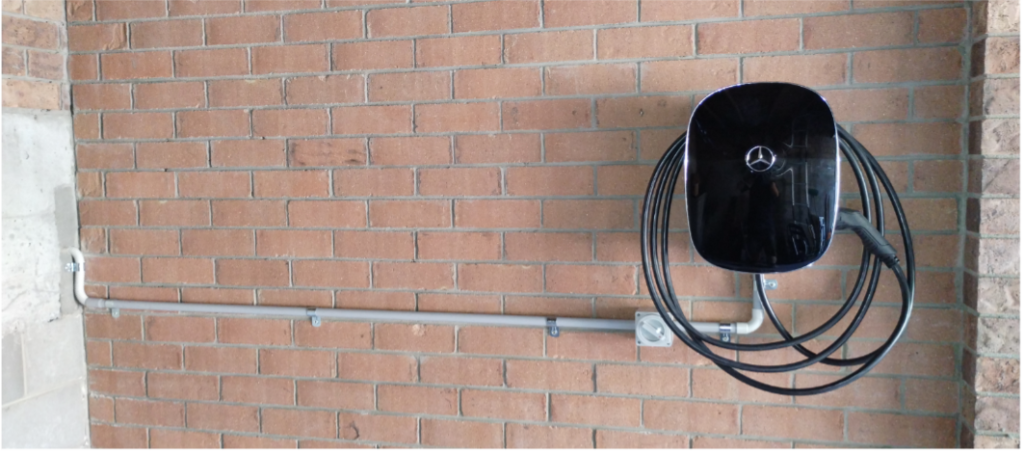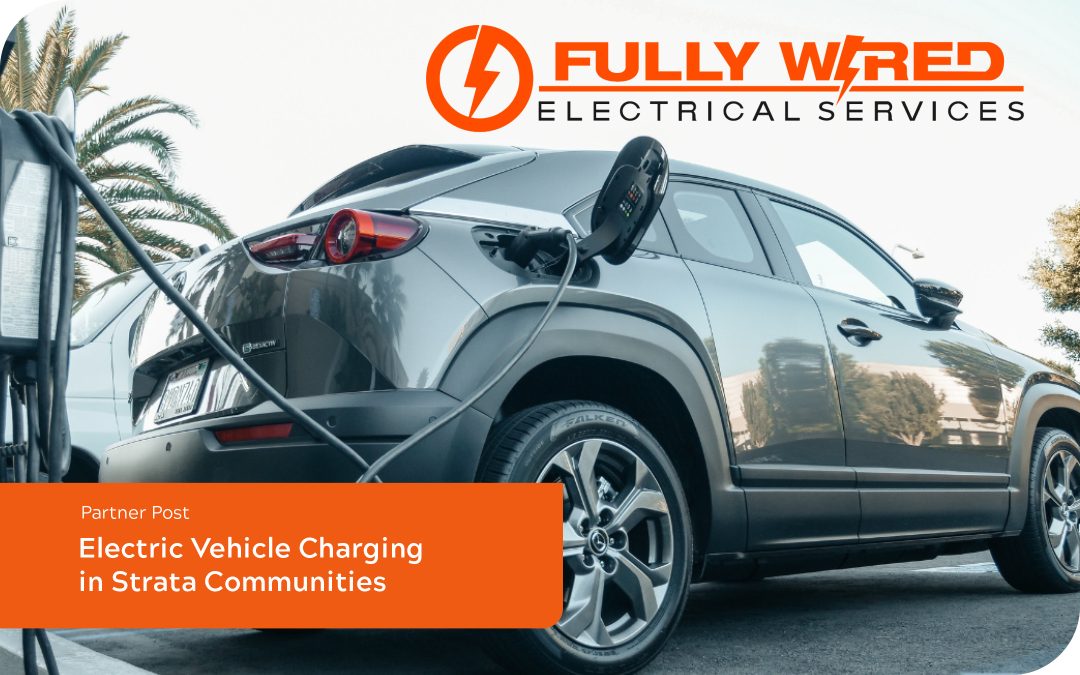Electric vehicle ownership is rapidly becoming the way of the future as the world transitions towards a more sustainable and eco-friendly transportation system. With advancements in battery technology, increased range capabilities, and a growing network of charging infrastructure, electric vehicles are becoming increasingly practical and appealing to consumers.
Electric vehicle charging in strata communities has emerged as a significant issue to address. With the growing popularity of electric vehicles (EVs), body corporates are increasingly recognizing the need to accommodate EV charging infrastructure for their residents. By providing charging stations within their premises, body corporates not only encourage environmentally friendly transportation but also cater to the changing needs of their residents. These charging facilities can be installed in common parking areas or private car spaces allowing EV owners in the body corporate to conveniently recharge their vehicles while at home.
However, installing electric vehicle (EV) chargers in a body corporate complex can be a complex task due to several factors. Firstly, the infrastructure requirements pose a challenge. In a body corporate complex, the existing electrical infrastructure may not be equipped to handle the increased demand, necessitating costly upgrades or modifications to the electrical system.
Secondly, logistical challenges come into play. Installing EV infrastructure installation often involves trenching or installing surface mounted equipment which can disrupt the property’s aesthetics and require coordination with multiple stakeholders. In a body corporate complex, obtaining approvals from all the unit owners or the body corporate committee can be time-consuming and may involve navigating through various processes. Additionally, the installation process will require collaboration with the building management and contractors to ensure that the charging stations are strategically located and properly integrated into the existing infrastructure.
Lastly, there are financial considerations. Installing EV chargers can be a significant investment for a body corporate complex. The cost of purchasing and installing the charging equipment, along with any infrastructure upgrades, needs to be carefully evaluated. Allocating the financial burden among the unit owners can be a contentious issue, and securing funding for the project may require a collective decision-making process and/or potentially add additional levies for the unit owners.
Overall, the complexities of installing EV chargers in a body corporate complex involve addressing infrastructure limitations, managing logistical challenges, and navigating financial considerations. Successful implementation requires careful planning, collaboration with all stakeholders, and a thorough understanding of the unique requirements of the complex.

